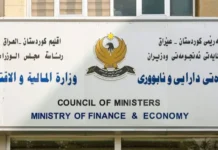Good Morning,
President Trump to Sign Executive Order Threatening Penalties for Crypto Debanking
New directive would investigate banks and impose penalties for politically motivated financial discrimination
Executive Action Targets Financial Discrimination
President Donald Trump is reportedly preparing to sign a sweeping executive order aimed at protecting crypto companies, conservative-aligned businesses, and individuals from being debanked by U.S. financial institutions, according to The Wall Street Journal.
The draft order directs federal regulators to:
- Investigate if financial institutions violated any laws by terminating services based on political or ideological bias.
- Enforce penalties, including fines, consent decrees, and disciplinary measures, for discriminatory debanking.
- Examine compliance with the Equal Credit Opportunity Act, antitrust laws, and consumer protection regulations.
The order could be signed as early as this week, though timing and final content remain subject to change.
What Is Debanking — And Why Now?
The executive order follows rising concern over what’s been called “Operation Choke Point 2.0” — a term used by critics to describe regulatory pressure that allegedly forced banks to cut ties with politically disfavored industries, especially crypto firms, during the Biden administration.
This follows the earlier Operation Choke Point 1.0 (2013–2017), in which the DOJ pressured banks to avoid servicing high-risk industries like payday lending, firearms sales, and others.
The new Trump directive seeks to:
- Remove legacy policies that contributed to debanking.
- Mandate the Small Business Administration (SBA) to review its loan partner practices.
- Refer some cases to the Attorney General for prosecution.
Regulators Already Responding to Political Pressure
Amid growing Republican scrutiny, some banks have preemptively adjusted internal policies and met with GOP attorneys general to demonstrate neutrality regarding clients’ political affiliations.
Under Trump’s influence, financial regulators — including the Federal Reserve, OCC, and FDIC — have pledged to no longer consider “reputational risk” when evaluating banking relationships, a significant reversal from prior regulatory practice.
Crypto Leaders Speak Out on Industry Debanking
Executives across the crypto sector have long alleged that banks have unfairly denied them access to financial services.
While banks claim their decisions are grounded in legal and compliance risks — particularly anti-money laundering (AML) obligations — crypto leaders argue that political targeting was often at play.
Following Trump’s 2024 re-election campaign — which received support from several prominent crypto donors — Trump pledged to:
- End Operation Choke Point 2.0.
- Establish a regulatory framework that supports crypto innovation.
After his victory, crypto industry leaders including:
- Marc Andreessen (a16z crypto)
- Caitlin Long (Custodia)
- Brian Armstrong (Coinbase)
- Cameron & Tyler Winklevoss (Gemini)
- Jesse Powell (Kraken)
- Sam Kazemian (Frax Finance)
began publicly sharing stories of being debanked or deplatformed under previous administrations.
Congressional Oversight and Personal Testimonies
In January 2025, the U.S. House Committee on Oversight and Government Reform launched a formal investigation into crypto debanking. Firms including Coinbase, Kraken, and Uniswap Labs were contacted for testimony and documentation.
Adding to the personal narrative, Eric Trump, the former president’s son and an investor in bitcoin mining and DeFi ventures, described how he turned to crypto after being deplatformed by several banks:
“I never thought I’d fall into the world of crypto until every bank began cancelling us for absolutely no reason other than the fact that my father was in politics,” Eric Trump said in April.
“They came after us viciously. It wasn’t until that time that I realized how important crypto was.”
Conclusion
If signed, this executive order could mark a turning point in the intersection of politics, finance, and crypto—setting new standards for financial neutrality and reshaping the banking landscape for digital asset firms.
@ Newshounds News™
Source: The Block
~~~~~~~~~
CFTC Moves to Allow Spot Crypto Trading on Registered Exchanges
New initiative aligns with Trump administration’s crypto recommendations and aims to bring federal-level clarity to digital asset markets
CFTC Launches Spot Market Crypto Initiative
The U.S. Commodity Futures Trading Commission (CFTC) has announced a major step toward regulating spot crypto trading, as part of its ongoing efforts to implement policy guidance from the Trump administration’s Working Group on Digital Asset Markets.
The new initiative would enable the trading of “spot crypto asset contracts” on CFTC-registered futures exchanges, marking a significant shift in how digital assets could be regulated at the federal level.
“The CFTC is full speed ahead on enabling immediate trading of digital assets at the Federal level in coordination with the SEC’s Project Crypto,”
— Caroline Pham, CFTC Acting Chair
What Are Spot Crypto Contracts?
These proposed spot crypto asset contracts would closely resemble traditional futures-style listed contracts — with the crucial difference that they would reflect real-time spot market prices for cryptocurrencies. Importantly, these contracts would be traded on designated contract markets (DCMs) registered with the CFTC.
This structure is designed to mirror existing futures market practices, while offering investors direct exposure to the spot value of cryptocurrencies — under federal oversight.
CFTC Opens Public Comment Period
The CFTC is requesting feedback on the application of two key legal provisions:
- Section 2(c)(2)(D) of the Commodity Exchange Act
This provision requires that leveraged retail commodity transactions occur on CFTC-registered exchanges, offering a clear legal foundation for regulating leveraged spot crypto trading. - Part 40 of CFTC Regulations
This section governs how DCMs operate, including registration, compliance, and enforcement requirements.
The agency is also seeking views on:
- How this framework might interact with SEC oversight if crypto assets are classified as securities.
- The legal implications of offering non-security digital assets that may still qualify as investment contracts.
🗓️ Public comments are open until August 18.
Background: 18 Crypto Recommendations for the CFTC
The CFTC’s move is part of a broader initiative to implement the 18 recommendations from the President’s Working Group on Digital Asset Markets (released last week), which called on the Commission to:
- Clarify how digital assets are classified as commodities vs. securities.
- Outline rules for decentralized finance (DeFi) participation in regulated markets.
- Guide CFTC-regulated entities on digital asset custody, trading, and disclosure.
- Consider rule changes to accommodate blockchain-based derivatives.
Sixteen additional recommendations involve joint cooperation with agencies like the SEC, Treasury, and Federal Reserve, reflecting a coordinated federal crypto strategy.
Leadership Transition and Political Context
The CFTC is currently operating with just two commissioners:
- Caroline Pham, Acting Chair
- Kristin N. Johnson, who is reportedly planning to step down later this year.
Leadership gaps have widened following:
- Rostin Behnam’s resignation in January after the Trump administration’s return.
- Summer Mersinger and Christy Goldsmith Romero both stepping down in May.
The Trump White House had nominated Brian Quintenz, a former CFTC commissioner and crypto-friendly policy advocate, as permanent chair — but the Senate vote was delayed last week after White House intervention, leaving the appointment in limbo.
Conclusion
The CFTC’s proposal to allow spot crypto asset trading on federally registered exchanges represents a key moment in U.S. crypto regulation, signaling a turn toward institutionalization and clarity under the Trump administration.
By formally integrating digital asset spot trading into the framework used for derivatives markets, the CFTC is creating the conditions for regulated, scalable, and transparent crypto markets — with DeFi, retail leverage, and blockchain infrastructure all on the agenda.
@ Newshounds News™
Source: Cointelegraph
~~~~~~~~~
SEC’s Hester Peirce Defends Crypto Privacy, Slams Financial Surveillance
“Crypto Mom” calls for modern laws, challenges financial overreach, and backs crypto’s privacy promise amid rising regulatory tension.
Hester Peirce Challenges Financial Surveillance Regime
SEC Commissioner Hester Peirce, known as “Crypto Mom” for her pro-digital asset stance, delivered a powerful defense of financial privacy during the Science of Blockchain Conference, urging U.S. regulators to rethink outdated laws that no longer serve the modern digital economy.
Peirce sharply criticized the Bank Secrecy Act (BSA) — a 55-year-old law she described as the foundation of a growing financial surveillance state. She called for a regulatory reset to protect individual freedoms in the digital era.
“Our laws have turned banks into surveillance arms of the government. Crypto can restore the privacy that once existed with cash.”
— Hester Peirce, SEC Commissioner
Financial Surveillance by the Numbers
Peirce highlighted the extent of state surveillance:
- 25 million financial activity reports were filed in 2024 alone
- 4.7 million were classified as “Suspicious Activity Reports” (SARs)
- All data is collected under BSA mandates, without requiring individual warrants
She also criticized the SEC’s Consolidated Audit Trail (CAT) system, which logs every investor trade, regardless of suspicion — a practice she said erodes privacy and civil liberties.
Crypto’s Role in Restoring Financial Privacy
Peirce framed cryptocurrencies as digital analogues of cash, enabling private peer-to-peer transactions without third-party oversight. She argued that attempting to apply surveillance laws to immutable open-source protocols is misguided.
Her comments come during the Tornado Cash case, where co-founder Roman Storm faces trial in New York. Prosecutors allege the privacy protocol facilitated money laundering, while his defense maintains it’s a neutral tool, not unlike email or encryption.
A Lesson From the 1990s Encryption Wars
Peirce drew parallels to the 1990s battles over public encryption, when the U.S. government tried to ban strong cryptography for national security reasons. She invoked the legacy of Phil Zimmermann, creator of Pretty Good Privacy (PGP), whose legal victory secured Americans’ right to private communication.
“We didn’t ban email because bad actors used it. We shouldn’t ban crypto privacy tools either.”
— Hester Peirce
Rejecting the DeFi Broker Rule
Peirce also denounced the now-repealed DeFi broker reporting rule, which would have required decentralized platforms to report user data to the IRS — a policy she described as an attempt to “deputize” DeFi platforms as state surveillance tools.
That rule, introduced under the Biden administration, was formally repealed by President Trump in April, in line with his administration’s pro-crypto platform.
Industry Applauds Peirce’s Stance
Crypto leaders rallied behind Peirce’s speech:
- Peter Van Valkenburgh, CoinCenter: “One of the clearest defenses of financial privacy in the crypto era.”
- Nate Geraci, NovaDius Wealth: “Everyone in the industry should read her remarks in full.”
SEC’s New ‘Project Crypto’ Initiative
In a surprising alignment, SEC Chair Paul Atkins announced Project Crypto, a policy initiative to:
- Modernize securities laws for blockchain-based assets
- Support tokenized finance
- Review and repeal outdated regulations
The program marks the SEC’s first coordinated move to bring tokenized assets under a supportive federal framework.
Meanwhile, the White House is reportedly preparing an executive order to penalize banks that block crypto users and investors — further dismantling Biden-era crypto restrictions.
Conclusion: Privacy, Not Paranoia
Commissioner Peirce’s speech places financial privacy at the center of digital rights, casting crypto not just as a speculative asset class but as an essential safeguard against state overreach.
Her remarks — alongside the SEC’s shift toward Project Crypto — suggest a broader regulatory realignment is underway, one that may define how privacy, innovation, and individual sovereignty are balanced in the 21st century financial system.
@ Newshounds News™
Source: Coinpedia
~~~~~~~~~
Seeds of Wisdom Team RV Currency Facts Youtube and Rumble
Newshound’s News Telegram Room Link
Follow the Roadmap
Follow the Timeline
Seeds of Wisdom Team™ Website





